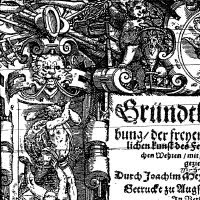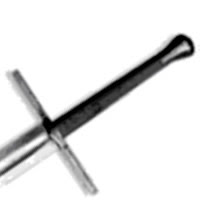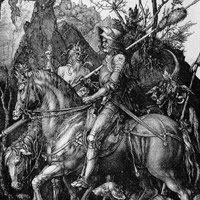Historical European fighting arts have survived to the present day through a surprising array of combat manuals written by various authors and commentators across the centuries.
A few of these manuals are text only treatises, while others are well illustrated; each of them must be translated before they can be used by the average English-speaking enthusiast, and a growing number of modern authors offer interpretations of the images and descriptions found within these works.
Free access to many source works and commentaries can be found online when one knows what one is looking for. An accessible and centrally located selection has been provided to the public courtesy of the ARMA at the Armarium.
However, the source texts may seem inaccessible to the beginning student.
For those unable to attend formal instruction, or wishing to start a study group, a number of modern authors have offered published training guides to the many armed and unarmed fighting arts comprising the Historical European Martial Arts.
One such guide, which outlines the use of the German Longsword and is based upon the texts and commentaries of what is commonly known as the Liechtenauer tradition, can be found in C. H. Tobler's book Fighting with the German Longsword.
A little searching online will turn up other approaches to structuring your training. Many different interpretations of the source works exist, with variance from school to school, and practitioner to practitioner. Often the interpretations used by any one person will change over time, reflecting their study and practice, and their communication with other practitioners.
Truly, however you interpret the manuals, it is the manner in which you and your partners approach your own study and training, and how you conduct youselves in your interactions with other practitioners, that will determine the outcome of your efforts. The values of respect, sincerity and camaraderie can be appreciated by all.
The rich and exciting legacy of the historical martial arts has been preserved through the Manuals of the Masters. By approaching these works honestly and earnestly, we do honour to our ancestors' efforts in preserving them.
A few of these manuals are text only treatises, while others are well illustrated; each of them must be translated before they can be used by the average English-speaking enthusiast, and a growing number of modern authors offer interpretations of the images and descriptions found within these works.
Free access to many source works and commentaries can be found online when one knows what one is looking for. An accessible and centrally located selection has been provided to the public courtesy of the ARMA at the Armarium.
However, the source texts may seem inaccessible to the beginning student.
For those unable to attend formal instruction, or wishing to start a study group, a number of modern authors have offered published training guides to the many armed and unarmed fighting arts comprising the Historical European Martial Arts.
One such guide, which outlines the use of the German Longsword and is based upon the texts and commentaries of what is commonly known as the Liechtenauer tradition, can be found in C. H. Tobler's book Fighting with the German Longsword.
A little searching online will turn up other approaches to structuring your training. Many different interpretations of the source works exist, with variance from school to school, and practitioner to practitioner. Often the interpretations used by any one person will change over time, reflecting their study and practice, and their communication with other practitioners.
Truly, however you interpret the manuals, it is the manner in which you and your partners approach your own study and training, and how you conduct youselves in your interactions with other practitioners, that will determine the outcome of your efforts. The values of respect, sincerity and camaraderie can be appreciated by all.
The rich and exciting legacy of the historical martial arts has been preserved through the Manuals of the Masters. By approaching these works honestly and earnestly, we do honour to our ancestors' efforts in preserving them.







No comments:
Post a Comment